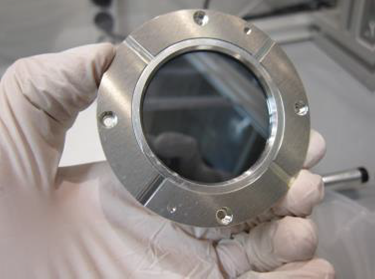Canatu and ESA sign contract for the development of a fully carbon nanotube based optical filter for x-ray astronomy in support of the ATHENA mission
VANTAA FINLAND, December 15, 2022 — Canatu and the European Space Agency (ESA) have signed a contract to develop an optical blocking filter using a unique carbon nanotube (CNT)-based support structure and investigate its applicability for the ATHENA (Advanced Telescope for High Energy Astrophysics) telescope. The optical blocking filter is designed to let x-rays pass through whilst blocking out other wavelengths, enabling precise imaging of celestial objects. Such filters are extremely fragile, so they are typically provided with a metal mesh support. During the 9-month project, Canatu will develop a fully CNT-based x-ray filter with a totally new CNT support structure providing higher transmittance at x-ray compared to metal mesh. In this project, Canatu collaborates with Ametek Finland and the University of Palermo (UNIPA). Canatu is a leader in advanced CNT focused on highly engineered solutions. Read press release in Finnish.
This collaboration builds upon Canatu and ESA’s earlier project on optical filter development, signifying the ESA’s trust in Canatu’s technology and ability to create transformative solutions for the most demanding applications.
“We look forward to our continued collaboration with ESA on this exciting new project, “says Ilkka Varjos, CTO of Canatu. Our unique expertise is to adapt Canatu CNT network structures for different contexts and uses. A fully CNT-based optical filter is a prime example of an application where advanced Canatu CNT can have a transformative impact. This project gives our platform technology yet another opportunity to demonstrate its versatility, reliability, and feasibility in x-ray astronomy and EUV alike,” Varjos continues.
“Canatu CNT has significant potential for a variety of new applications in the fields of x-ray astronomy and beyond due to its extremely high x-ray transmittance, robustness to pressure differentials, and chemical inertness. For this reason, a new activity has been financed to verify these qualities in x-ray astronomy and demonstrate the technology’s readiness for a space application.”
Alessandra Ciapponi, Optoelectronic Engineer of the European Space Agency
To evaluate the effective capability of the optical filter to block UV/VIS/IR radiation, while providing high X-ray transmittance and being strong enough to withstand the severe launch stresses, the samples will undergo rigorous testing including vibration tests, X-ray transmittance tests, and radio frequency (RF) absorption measurements.
The ATHENA mission centers around studying the Hot and Energetic processes in the Universe. Its overarching purpose is to answer to key questions in astrophysics about how galactic clusters and galaxies are formed, as well as how black holes grow and shape their surroundings. The ATHENA launch is planned for 2033.
Key features
- Ultra-thin, aluminum coated optical blocking filter mounted on metal frame
- Blocks the UV/VIS/IR radiation while offering high X-ray transmittance
- Used in front of X-ray detectors to exploit their high sensitivity and enable precise imaging of celestial objects
- Unique CNT-based support structure that replaces the metal mesh providing higher X-ray transmittance
- High mechanical strength
- High vacuum compatibility
- High thermal stability
- Able to withstand pressure differentials
- Chemically inert

Contact

Send us a message
About Canatu
Canatu is a carbon nanomaterial developer creating the most advanced carbon nanotubes for industry-transforming products. The Canatu carbon nanotube (CNT) technology has been created with a unique process that ensures the required versatility and reliability for highly engineered solutions. Canatu partners with forerunner companies, together transforming products for better tomorrows with nano carbon. The company’s focus is in the automotive and semiconductor industries with the portfolio’s core spanning from ADAS heaters to 3D touch sensors and to EUV membranes. The experts at Canatu think big and create impacts on the tiniest scale – nano solutions for massive impact. Canatu’s headquarters are in Finland with sales offices also in the US, Japan and Taiwan.
Miscellaneous
The program will be carried out under a programme of and funded by the European Space Agency. The view expressed herein can in no way be taken to reflect the official opinion of the European Space Agency.